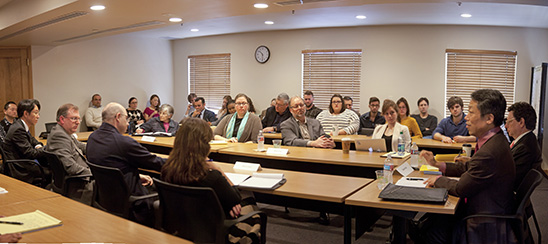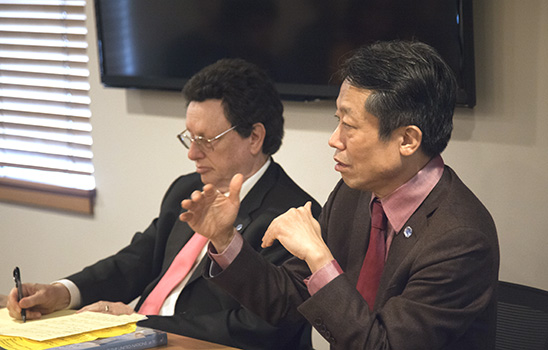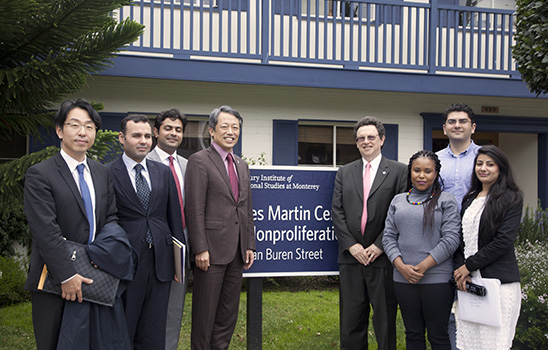February 3, 2016
On Friday, January 29, United Nations High Representative for Disarmament Affairs Kim Won-soo delivered a lecture at the James Martin Center for Nonproliferation Studies (CNS), where he provided an overarching view of the global challenges and threats posed by nuclear weapons to an audience of approximately fifty students, faculty, and staff.

Dr. William C. Potter, CNS founding director, hosted the High Representative and moderated the event, which was covered in the Monterey County Herald.
In a sweeping overview of the present-day security environment, Mr. Kim identified some of the most pressing challenges, including the Middle Eastern refugee crisis and the latest North Korean nuclear weapon test. Such threats, he said, posed a “very difficult and troubling” start to the new year. He also discussed the challenges posed by emerging and disruptive technologies, such as drones, additive manufacturing (or 3D printing)—particularly in the context of the continuing rise of violent non-state actors—as well as the problems posed by deteriorating US-Russia relations.

CNS Director William Potter and UN High Representative Kim Won-soo
Amid these troubling concerns, however, Mr. Kim highlighted some significant, recent steps that have strengthened global security, such as the July 2015 Iran nuclear deal and the December Paris Agreement on climate change.
To Dr. Potter, the threats, challenges, and opportunities signal the “importance of forging more partnerships between the public and private sectors, as well as among civil society, national governments, international organizations, and industry.” It also demonstrates the importance of education and training on these critical issues, and toward that end CNS is making an important contribution. “It is our objective,” said Dr. Potter, “to make the world a safer place by assisting students and junior diplomats in acquiring critical thinking and analytical skills—not what to think, but how to think.”
→View more photos from the event

UN High Representative Kim Won-soo with CNS Director William Potter
